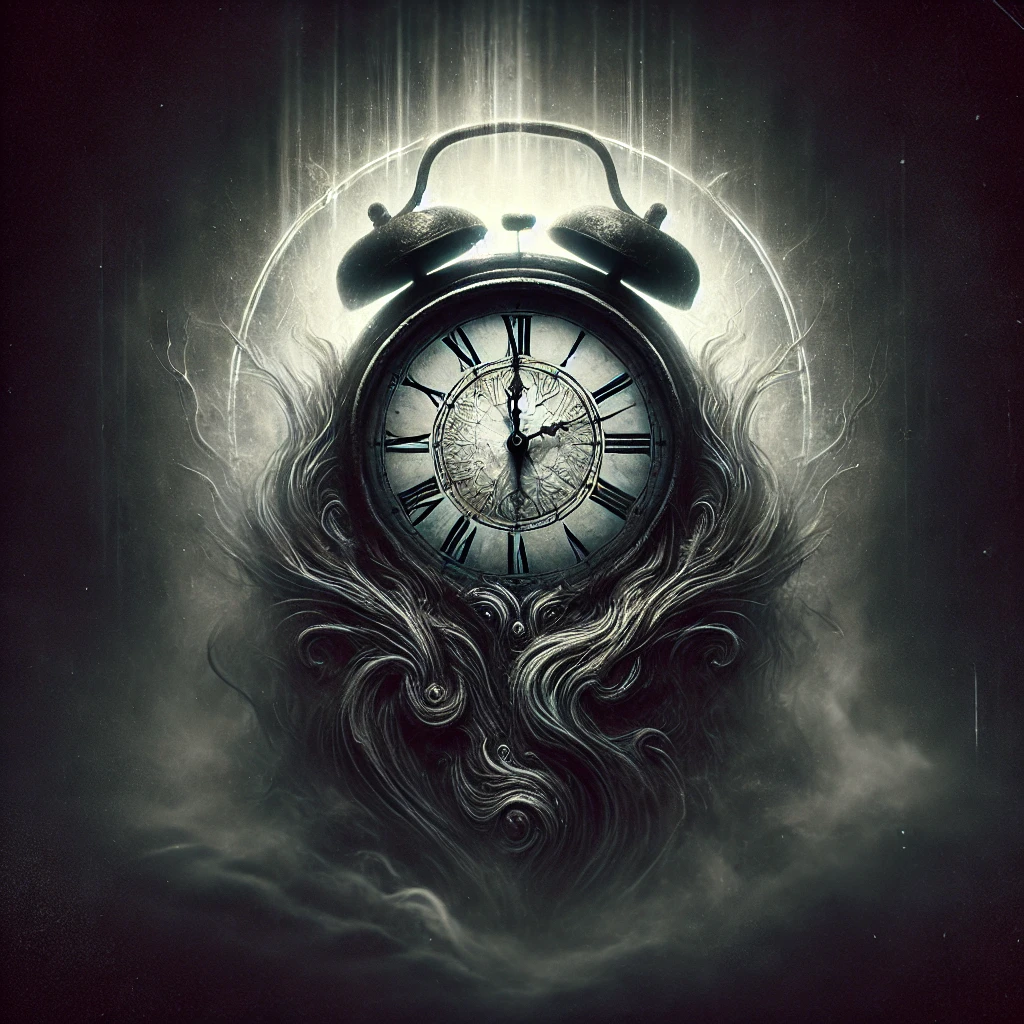
“A distorted clock hints at the elusive nature of sleep and the surreal passage of time within sleep cycles.”
1. Introduction: The Sleep Paradox
In a society driven to maximize output, sleep has become an undervalued luxury. Yet we all know—deep down—that neglecting sleep exacts a heavy toll. From the productivity-obsessed to the sleepless night owls, everyone feels the slow burn of exhaustion creeping in, yet we ignore it. Why? Because sleep, with its enigmatic silence, is easy to sacrifice—until it isn’t.
In this silent contract between body and mind, the terms are absolute: skimping on sleep is an unsustainable choice. The optimal amount of sleep isn’t just a matter of hours logged; it’s the difference between living and merely existing.
“Sleep is the body’s oldest bargain. You pay, or you lose.”
2. Age and Sleep Needs: How Requirements Shift Over a Lifetime
Sleep requirements change over a lifetime, though the need for high-quality sleep remains constant. Infants sleep up to 16 hours to fuel rapid growth and development, while teens need about 8-10 hours to keep pace with the demands of adolescence. But as adults, the range narrows to 7-9 hours, and we suddenly realize sleep isn’t optional. The stakes are higher, and the body’s resilience wanes.
The Changing Nature of Sleep
As we age, our ability to sink into deep, undisturbed sleep diminishes. For adults, life becomes a delicate balance of managing stress, hormone levels, and an ever-changing circadian rhythm—all of which shape how well we sleep. Disruptions to this fragile balance ripple outward, impacting physical health, mental clarity, and even our emotional state.
“Youth forgives; age demands. The need for sleep remains, but the reasons evolve.”
Why the Changes?
- Hormones at Work: Key sleep-regulating hormones like melatonin naturally decline with age, making it harder to fall and stay asleep.
- Stress Response: High stress means higher cortisol levels, disturbing the delicate sleep cycles our bodies depend on.
- Circadian Rhythm Sensitivity: With age, our internal clocks become more susceptible to lifestyle factors—screen time, caffeine, even irregular routines.
3. What Science Says: Finding the Optimal Range for Adults
For most adults, 7-9 hours is the recommended sweet spot, according to the National Sleep Foundation. But research reveals a more complex truth: while these numbers provide a rough guideline, the key lies in quality, not merely quantity. This is where the concept of sleep cycles becomes essential.
The Science of Sleep Cycles
Sleep unfolds in cycles of approximately 90 minutes, each cycle moving through light, deep, and REM stages. Adults should aim to complete at least 4-5 of these cycles, or around 7-8 hours. When sleep cycles are disrupted, the body’s recovery and regeneration suffer.
Quality vs. Quantity
Many studies reveal that people who sleep 7 hours continuously often feel more refreshed than those who sleep a fragmented 9. The body thrives on routine, and the benefits of uninterrupted, high-quality sleep far outweigh the perceived “bonus” of extra hours.
“In the quiet hours, our bodies speak—some hear it, others ignore it.”

4. Compromises and Risks: The Effects of Too Little (or Too Much) Sleep
When we deprive ourselves of sleep, the consequences are insidious but unmistakable. We lose focus, our mood darkens, and our bodies begin a slow decline. Chronic sleep deprivation erodes mental acuity and increases risks for severe health conditions—heart disease, diabetes, even dementia.
The Cost of Deprivation
The true cost of sleep deprivation goes far beyond tired eyes and groggy mornings. Without enough sleep:
- Memory Weakens: Sleep is critical for memory consolidation, meaning each sleepless night diminishes cognitive function.
- Hormones Suffer: Disrupted sleep affects mood and appetite, leading to irritability, weight gain, and even reduced immune function.
- Health Risks Skyrocket: Prolonged poor sleep is linked to increased risks of chronic illnesses, from hypertension to depression.
“You may feel awake, but your body remembers every hour of rest it lost.”
The Risks of Oversleeping
On the other end of the spectrum, regularly exceeding 9 hours of sleep also carries risks, including a greater likelihood of obesity, mental health issues, and metabolic disorders. Oversleeping may disrupt the body’s circadian rhythm, creating a sluggish cycle that can amplify fatigue instead of relieving it.

5. Sleep Quality Hacks: Strategies for Better Rest
“Sleep is less about hours logged and more about energy unlocked.”
Key Strategies for Deep, Quality Sleep:
- Establish a Consistent Routine: Going to bed and waking up at the same time regulates your body’s internal clock. It may feel mundane, but your body craves routine.
- Create a Restful Environment: A dark, cool, quiet room improves sleep quality, and blackout curtains or white noise can work wonders.
- Limit Late-Day Stimulants: Caffeine after 3 p.m. and alcohol late at night interfere with sleep cycles, so aim to avoid both for a smoother rest.
- Prioritize Deep Sleep: Techniques like meditation, deep breathing, or a warm bath can help signal to your nervous system that it’s time to relax, paving the way for deeper sleep.
Sleep Technology and Tools
While tech-driven tools like sleep trackers or blue-light-blocking glasses offer insights, beware of over-reliance. Obsessing over metrics can create stress, paradoxically harming sleep quality.
“Rest isn’t just passive; it’s the body’s most active repair process.”
6. DARWIN’s Take
In our pursuit of progress, sleep has become a casualty of ambition. We sacrifice hours of rest to gain an edge, but the cost is far greater than we anticipate. In a world that prizes productivity above all, we ignore the warning signs of sleep deprivation, embracing exhaustion as a badge of honor. But remember: the body keeps score, and at some point, we must pay back the debt.
“When we no longer value rest, who remains to carry on?”
Further Reading on Paranoid Prophet
- The Psychology of Conspiracy Theories
This article delves into the mental frameworks that drive our attraction to conspiracy theories, from confirmation bias to cognitive dissonance. It’s an unsettling look at why we see hidden patterns and cling to narratives that validate our suspicions. For anyone intrigued by how biases shape belief, this piece illuminates how the mind distorts reality in its search for hidden truths. - Family Feud Survey Curation Analyze the fascinating process of survey creation in Family Feud and its role in shaping the game and audience engagement.
- Mainstream News Influence Explore how curated media shapes public perception and reinforces societal norms.
- Conspiracy: Unveiling Hidden Agendas Delve into a broad range of conspiracies and uncover the subtle ways information is controlled.
Sources
- New York Post Aligning sleep patterns with natural circadian rhythms enhances sleep quality.
- Sleep Foundation Utilizing tools like sleep calculators can help determine optimal sleep and wake times.
- Sleep Foundation Adopting healthy sleep habits, such as maintaining a regular sleep schedule and creating a restful environment, can significantly improve sleep quality.
- Sleep Foundation For personalized advice, consulting healthcare professionals is recommended.
FAQ for “Optimal Sleep Amount”
General Sleep Amount Questions
1. How much sleep do adults need each night?
Most adults need 7-9 hours of sleep per night to maintain optimal physical and mental health.
2. Do children and teenagers require more sleep than adults?
Yes, children and teens need significantly more sleep, with infants requiring up to 17 hours, school-age children needing 9-11 hours, and teenagers requiring 8-10 hours.
3. Can too much sleep be harmful?
Yes, consistently sleeping more than 9-10 hours per night may be linked to health risks like depression, obesity, and cardiovascular issues.
Sleep Quality and Its Importance
4. Is sleep quality more important than the total amount of sleep?
Both are important. Poor sleep quality can negate the benefits of sufficient sleep, leading to fatigue and poor health outcomes.
5. How can I tell if I’m getting enough sleep?
Signs of sufficient sleep include feeling refreshed upon waking, staying alert throughout the day, and not needing excessive caffeine.
Sleep Variations by Age and Lifestyle
6. How does sleep need change with age?
As people age, they tend to need slightly less sleep. Older adults typically require 7-8 hours per night, though the quality of sleep becomes more crucial.
7. Do active people or athletes need more sleep?
Yes, physically active individuals often require additional sleep for muscle recovery and peak performance.
Factors Affecting Optimal Sleep
8. Can stress impact how much sleep I need?
Yes, high stress levels can interfere with sleep quality, potentially increasing your need for rest to compensate for poor-quality sleep.
9. Does diet affect how much sleep I need?
A healthy diet supports better sleep quality, while excessive caffeine, sugar, or heavy meals late at night can disrupt your sleep cycle.
10. How does screen time impact sleep?
Excessive screen time, especially before bed, disrupts melatonin production, reducing sleep quality and increasing the time it takes to fall asleep.
Practical Tips for Achieving Optimal Sleep
11. Should I stick to a consistent sleep schedule?
Yes, going to bed and waking up at the same time daily helps regulate your internal clock, making it easier to fall asleep and wake up refreshed.
12. How can I improve my sleep if I’m always tired?
Create a calming bedtime routine, avoid caffeine in the afternoon, and aim for a consistent sleep environment free from distractions.
13. Can naps help if I don’t get enough sleep at night?
Yes, short naps (20-30 minutes) can help reduce fatigue, but they shouldn’t replace a full night’s sleep.
Sleep Myths
14. Can I “catch up” on sleep over the weekend?
While extra sleep can help reduce immediate fatigue, it’s not a substitute for maintaining a consistent sleep schedule.
15. Does everyone need 8 hours of sleep?
Not necessarily. Individual sleep needs vary, with some adults thriving on 7 hours while others require 9 to feel their best.

